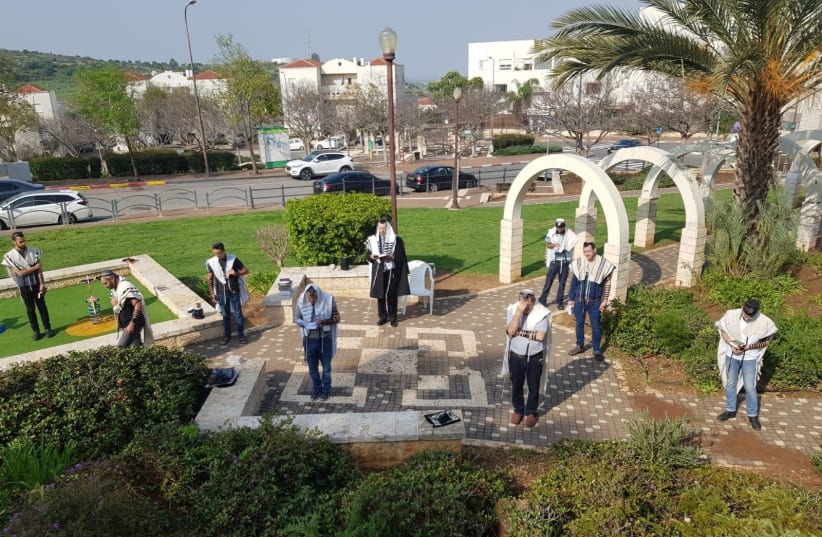"Difficult days are affecting all of Israel and the entire world," wrote Lau in a letter on Sunday. "At this time, it is on us to do some soul-searching."
The chief rabbi called for everyone to better their ways concerning commandments which determine behavior between each person and their fellow and concerning commandments between man and G-d.
The Hebrew month of Nisan was referred to as the first month of the Hebrew calendar in the Torah and, according to the opinions of some Jewish scholars, the first day of the month was when the creation of the world occurred and is a day of prayer and supplication, similar to Rosh Hashana, celebrated in the Hebrew month of Tishrei.
The rabbi asked all who can to fast for at least half a day on Wednesday. For those who can't fast due to the difficulty or because of health reasons, Lau asked that they take on a "ta'anit dibur," a practice in which one abstains from all speech that does not concern Torah or prayer.
Lau also asked that during the afternoon prayers of Mincha, people add the Selichot, prayers for forgiveness, that are recited as part of a practice observed by some on the eve of the first day of each month called "Yom Kippur Katan," a Minor Day of Atonement, including fasting and supplication. Those praying without a minyan, a congregation of ten, should also say the Selichot.
"The good Lord will listen to our prayers and answer us and redeem us from all the harsh decrees, He will save in His great mercy his people Israel and all the children of the world who need it. A petition looking to Divine Mercy," concluded Lau.
Jewish communities throughout the world have been affected by the coronavirus pandemic, with many communities temporarily shuttering synagogues, schools and community establishments in order to prevent the spread of the virus.
